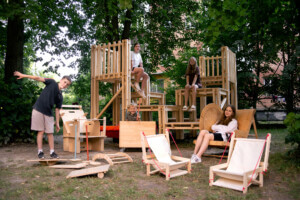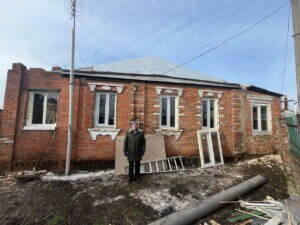The United Nations Educational, Scientific and Cultural Organization (UNESCO) commands a significant presence in Ukraine with a total of seven designated World Heritage Sites, eight Biosphere Reserves, four elements included on Intangible Cultural Heritage lists, 78 UNESCO-associated schools, a trio of UNESCO Creative Cities (Lviv, Odessa, and Kharkiv), and more. In the days—and now weeks—since Russia began a full-scale invasion of its sovereign neighbor to the west, UNESCO has moved to ensure the protection of the Eastern European country’s wealth of cultural heritage monuments and sites.
On February 24, the day that the conflict formally broke out, UNESCO released the following statement:
“UNESCO is deeply concerned about the ongoing military operations and the escalation of violence in Ukraine. As stated by the UN Secretary-General, such operations are violations of the territorial integrity and sovereignty of Ukraine and are inconsistent with the Charter of the United Nations.”
On March 3, following the adoption by the United Nations General Assembly of the Resolution on Aggression against Ukraine, UNESCO put out a second, more comprehensive release further detailing the enormity of what is at risk and how the organization plans to act through the implementation of what it called “emergency support actions” amid a bloody and unprovoked conflict on European soil.
“We must safeguard this cultural heritage, as a testimony of the past but also as a vector of peace for the future, which the international community has a duty to protect and preserve for future generations,” said UNESCO Director-General Audrey Azoulay. “It is also to protect the future that educational institutions must be considered sanctuaries.”
As a means of limiting further damage to and the full destruction of Ukraine’s myriad cultural heritage sites, UNESCO, in close coordination with Ukrainian authorities, has already set out to mark identified sites with the emblem of the 1954 Hague Convention, which it describes as being an “internationally recognised signal for the protection of cultural heritage in the event of armed conflict.” It has also moved to organize a meeting with museum directors from across Ukraine to “help them respond to urgent needs for safeguarding museum collections and cultural property.” As further detailed in a more recent UNESCO statement, the organization, acting in cooperation with UNITAR/UNOSAT, said it will monitor damages inflicted upon cultural sites through satellite imagery analysis.
UNESCO also strongly condemned attacks on Ukraine’s educational facilities, noting that at the time of writing at least seven Ukrainian educational institutions including Karazin Kharkiv National University had sustained direct attacks by Russian forces. “The nationwide closure of schools and education facilities has affected the entire school-aged population—6 million students between 3 and 17 years old, and more than 1.5 million enrolled in higher education institutions,” elaborated UNESCO. “The escalation of violence hampers the protective role of education, and the impact may be far-reaching including in neighbouring countries.”
The organization also expressed its unwavering condemnation of reported attacks on the Babyn Yar Holocaust memorial, the site of the largest mass murder of Jewish people during World War II; it also made clear its “deep concern” regarding reports of direct attacks on Ukrainian media infrastructure, specifically noting the shelling of the capital city of Kyiv’s main television tower.
The UNESCO Executive Board will hold a special session on March 15 to “examine the impact and consequences of the current situation in Ukraine in all aspects of UNESCO’s mandate.”
For more on at-risk Ukrainian art and architecture and the en masse destruction of the common urban fabric in cities across the country, Ashley Bigham, co-founder of Columbus, Ohio-based Outpost Office and 2014 Fulbright Fellow in Ukraine, recently provided further insight to AN while detailing ways in which the architecture community can help.











